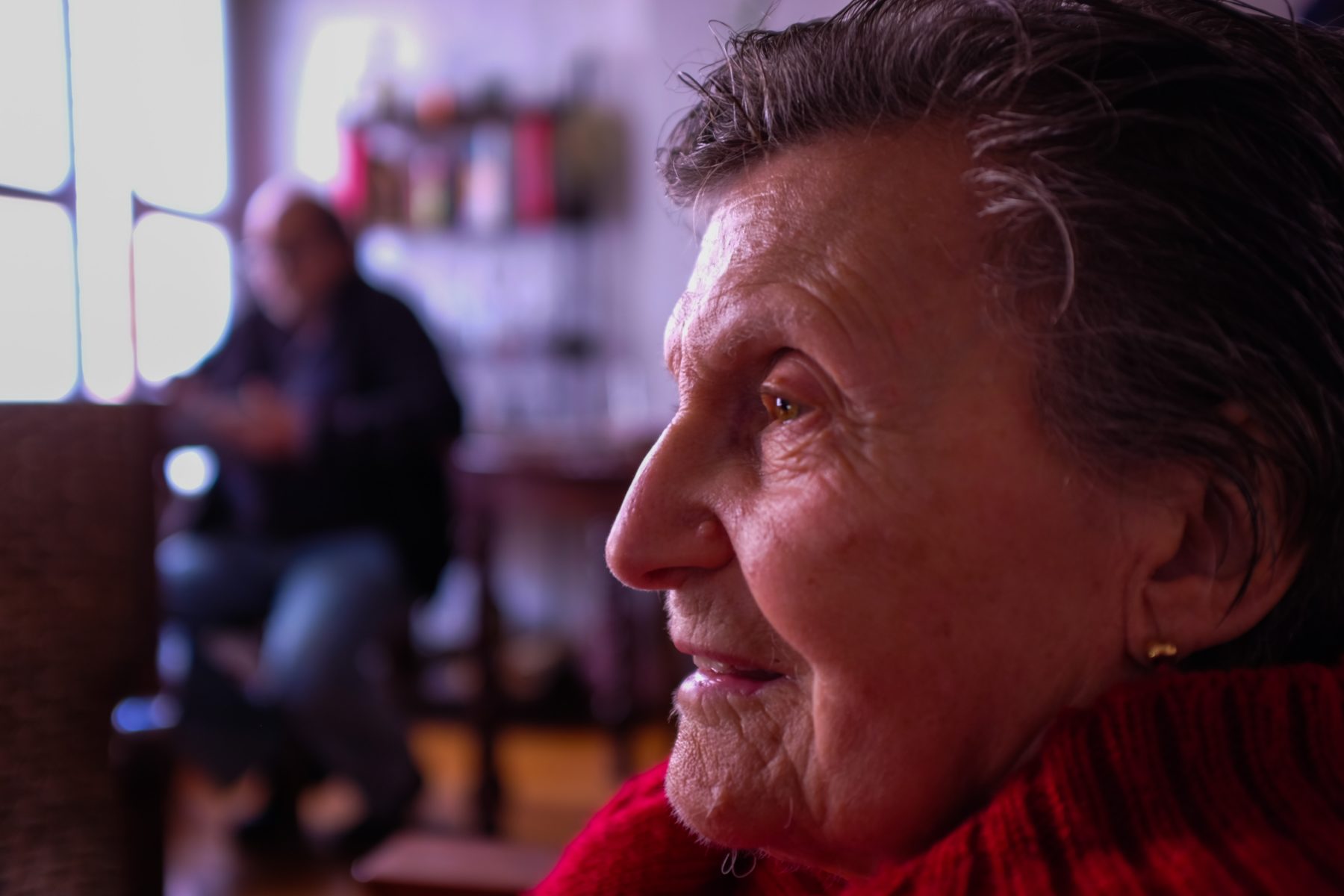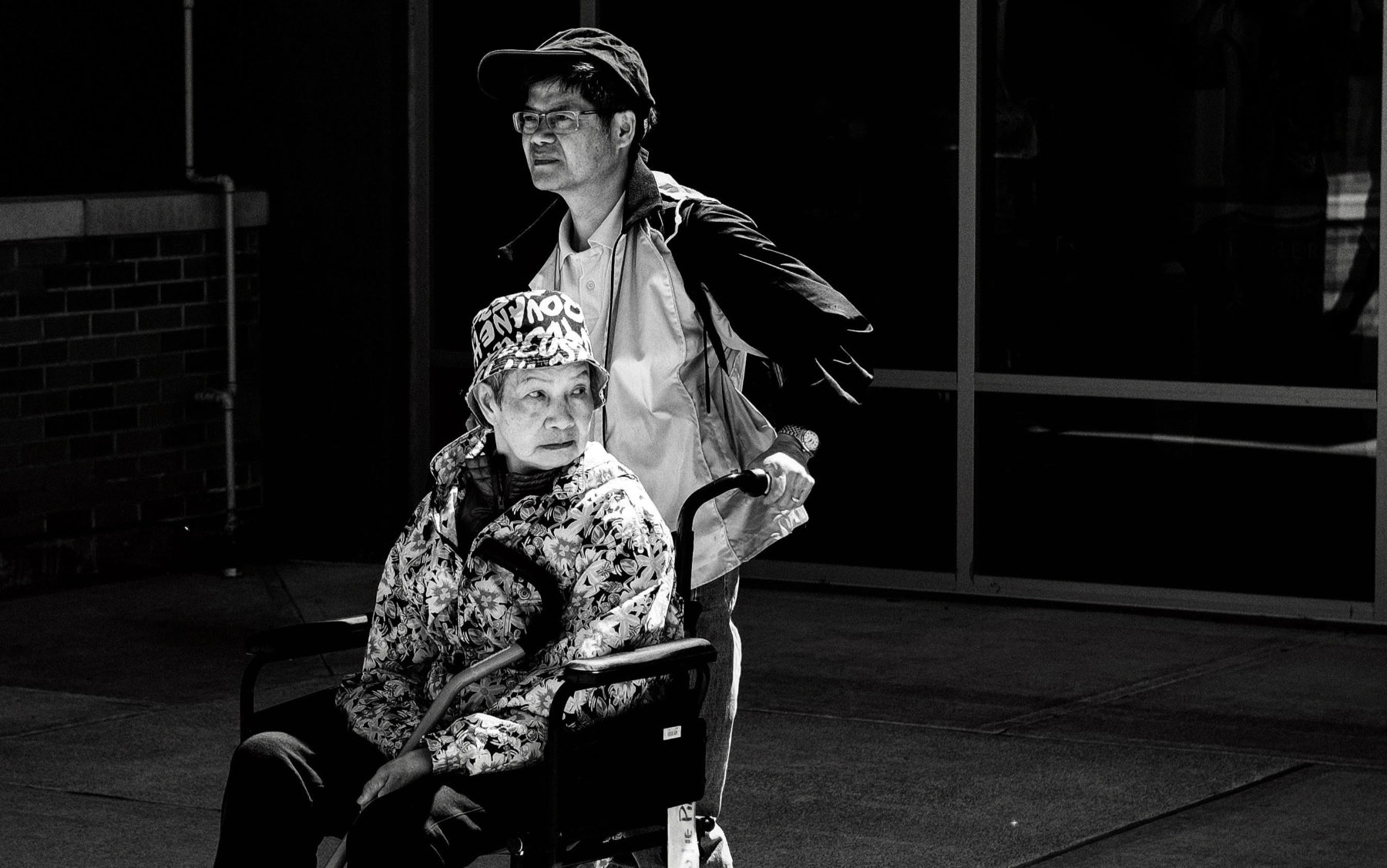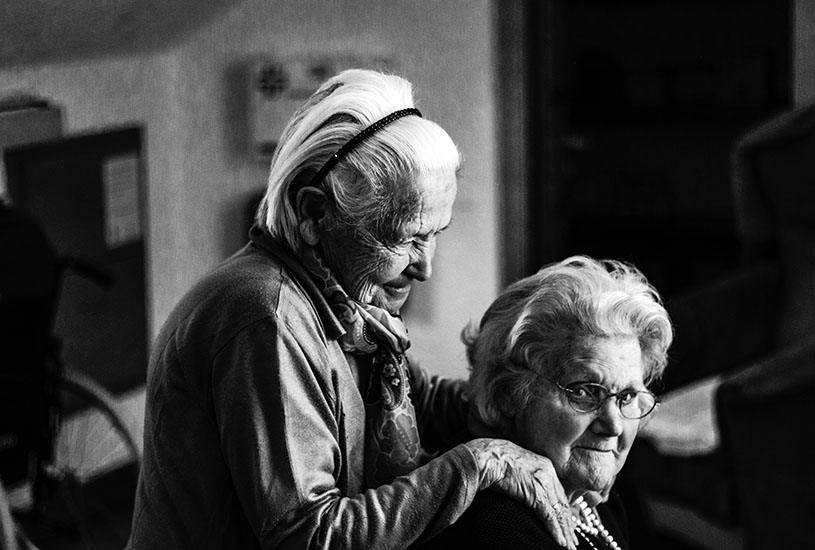Alzheimer’s is a horrific disease that can destroy a person’s quality of life. To learn how to properly care for people affected by the illness we must first understand what it’s like to live with Alzheimer’s from their perspective.
When the word ‘Alzheimer’s’ is mentioned, the initial thought that springs to mind for many is that it only affects the elderly.
A mental distinction is made where people genuinely believe the disease will never affect them or their loved ones.
So when the disease does hit, many are left blindsided, not knowing what to do.
Both the sufferer and the people surrounding them are left with a vast array of questions, the sufferer initially wondering how they will cope, the carer thinking how they can possibly provide for their afflicted loved one.

The harsh reality is that if you’re responsible for caring for someone with Alzheimer’s then it’s going to take a lot of time, patience and attention.
This requires a lot of strength from both parties. It can be an incredible mental strain for the carers as they are witnessing a loved one’s quality of life deteriorate in front of them.
But amongst the gloom not all hope is lost.
The difficulties of dementia
Dr Helen Macpherson from Deakin University’s Institute for Physical Activity and Nutrition (IPAN), is an expert in the field of dementia research.
She explains that dementia is an umbrella term for diseases like Alzheimer’s and Vascular Dementia and that the difficulties of dementia depend on the specific stage a person is in ranging from mild/pre-diagnosis to severe.
“The beginnings of a cognitive brain impairment are mild memory loss such as forgetting the names of people and places. In early stages, this can be compensated for by writing down prompts to assist certain activities.
“Unfortunately, some compensate in a negative sense by withdrawing from certain social functions with the fear that people may notice significant changes to their cognitive function,” she says.
Dr Macpherson explains that as the disease progresses, different difficulties will arise when it comes to activities needed for everyday living like grocery shopping, managing finances, working, cooking and a loss of awareness with personal hygiene.

This is the stage where sufferers really need to rely on the help of personal carers or family members to assist them.
In even later stages, more severe deficits may arise like the person having trouble feeding themselves and difficulty with speech or swallowing food.
Dr Macpherson says this is when higher level care and support might be needed, such as residential aged care.
Communication can be difficult, but is achievable.
The disease will affect many levels of a person’s functioning, not just memory.
Dr Macpherson says it’s important to remember that people with any form of dementia are, “not trying to be difficult.”
“Alzheimer’s is a disease, consider it like any other illness,” she says.
The person doesn’t need to be constantly corrected by a family member every time they repeat something, get confused or tell a story that is highly unlikely or embellished from the truth.
“Being supportive and having the conversation will help more than constant correction.
“Being patient and kind is essential; especially if the person afflicted forgets consistently the death of a significant other or loved one.”

“As they are reminded they may have emotional outbursts each time. The key is to communicate clearly that you are there to support them,” Dr Macpherson says.
Speaking in a gentle tone, remaining calm and trying not to get frustrated at the small things like confusion and repetition are the best ways to communicate.
Keeping things simple and using things from the past that may spark memories in the afflicted person can also assist in making communication easier.
The magic medicine
Unfortunately there is no known cure for Alzheimer’s disease.
However, there has been extensive research that suggests there is a link between heart health and the development of dementia.
Dr Macpherson strongly suggests that “exercise is the magic medicine. It can improve blood flow to the brain and it helps with a person’s mood by releasing endorphins.”
When trying to prevent the onset of Alzheimer’s, Dr Macpherson says staying physically active and maintaining a healthy diet can greatly decrease your risk of developing a form of dementia.
Getting involved in meaningful hobbies and maintaining cognitive stimulation also assists in preventing the disease.

“We have done a lot of research around the Medditeranean diet and its links to healthy brain function in the elderly. It can improve cognition for those who are at risk,’ she says.
In the early stages of preclinical dementia, known as ‘mild cognitive impairment,’ taking part in aerobic exercises like walking and weight training and resistance exercises can slow the deterioration of the person’s physical ability.
As dementia progresses the exercises undertaken have to be appropriate to the person’s level of function.
“Doing light walking and reducing sitting time can really help,” Dr Macpherson says.
“Keeping the person busy mentally is going to assist in creating a better quality of life. Keeping an afflicted person in bed consistently or having them sit all the time will make things rapidly worse.”
Caring for the carer
Carers need to remember to take a break, too, for their own physical and mental health.
Dementia Australia runs many education sessions for family members and carers regardless of their background and knowledge in aged care.
Dr Macpherson suggests if you are in this position, it’s important to seek the help you need.

She encourages carers to regularly exercise and maintain a healthy diet for their own needs and consider using the expertise of their GP to connect with the types of services that may assist them.
The most important thing to remember is that a person suffering from dementia may not realise they have the disease. Awareness is decreased the more it progresses.
Taking time to understand each other is what makes the patient-carer relationship a whole lot easier.
For more information regarding dementia care, visit Dementia Australia.



